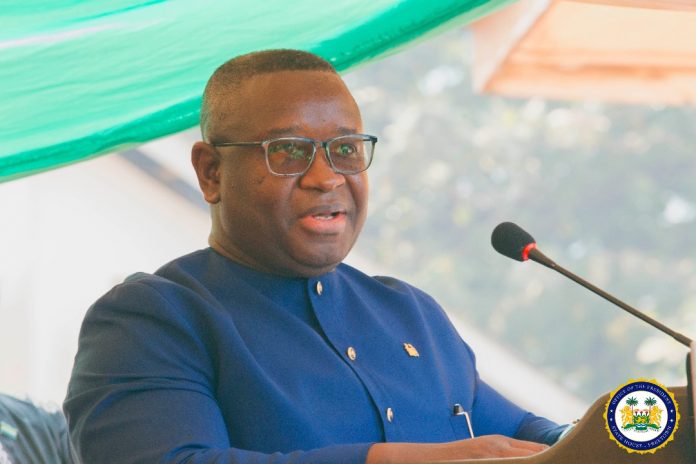By Amin Kef Sesay
The 1960s and to some extent the 1970s were the heydays of the University of Sierra Leone which then included only Njala University College and Fourah Bay College.
Those were the days when the name “Athens of West Africa” reverberated far and wide beyond the shores of Sierra Leone to Liberia, Gambia, Ghana, Nigeria, Zimbabwe, South Africa and leading higher learning institutions in Europe and USA.
By the time we entered the 1980s, the University, because of political and administrative reasons, started losing both its ethos and mission of serving as the shining intellectual and moral beacon that the rest of society should look up to for guidance and inspiration.
The challenges since then facing our University have been not the lack of funding, as many would want us to believe, but lack of vision, drive, initiative and transparency and accountability in the use of its subventions from the central Government by University administrators and managers.
Halt before you objection and answer when last was the University of Sierra Leone subjected to a forensic audit of its accounts and systems of learning in order to ensure that the University functions effectively and efficiently?
The University since the 1980s has become moribund in the sense that it is no longer a seat of learning excellence but a place where all kinds of mundane human vices thrive, including corruption and widespread exam malpractices.
This failings, no doubt have had very adverse effects on the University’s mission, mandate, character, and its proper place in society and the caliber of its products.
The World Bank, which puts education at the forefront of any nation’s socioeconomic transformation, maintains that the above is true to the extent that while the general agenda for higher education is to serve as the hub for knowledge production; and the university system are meant to teach, research and produce different aspects of knowledge (World Bank, 2004), higher education in Sierra Leone specifically has to a large extent not been able to achieve this critical agenda.
Knowledge production, research and teaching continue to dwindle due to human and infrastructural challenges such as poor funding, bad leadership, increasing rate of enrolment without corresponding improvement in infrastructure and man power, brain drain, among others.
The leadership challenge in our Universities poses one of the biggest threats to quality management. Looking at the broad canvas, the country’s University since the 1980s has been characterized by insufficient teaching and learning resources, inadequate capacity and a history of neglect – a situation which has had grave consequences on quality management.
Because of inadequate funding, leadership/governance challenges and lack of academic freedom, the best brains needed to impart quality knowledge/teaching, mentoring and research are continually being drained away.
How many professors, researchers, research facilities and published academic authors can our universities boast of?
So while the Universities are worried about savings and raising funds, their learners demand more flexibility and a quality higher education. Lecturers are also demanding better wages and reduced workloads.
The World Bank, in a report done in 2015, recommended that long-term sustainability is important if the education sector is to move forward, noting that policy choices for development targets need to consider both fiscal affordability and implementation capacity.
It further recommended that to facilitate discussions about policy choices, a policy simulation model be used to examine the relationship between higher education targets and financial implications, which in turn will help in the formulation of achievable and sustainable education goals.
This should include evaluating trade-offs among the targets, estimating the size of financing gaps, and assess the sustainability of the financial framework; that is costs, revenues and financing gaps in dealing with the myriad human and infrastructural challenges our Universities face, including the thorny one of lecturers salaries.




